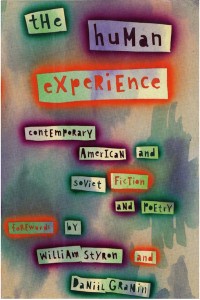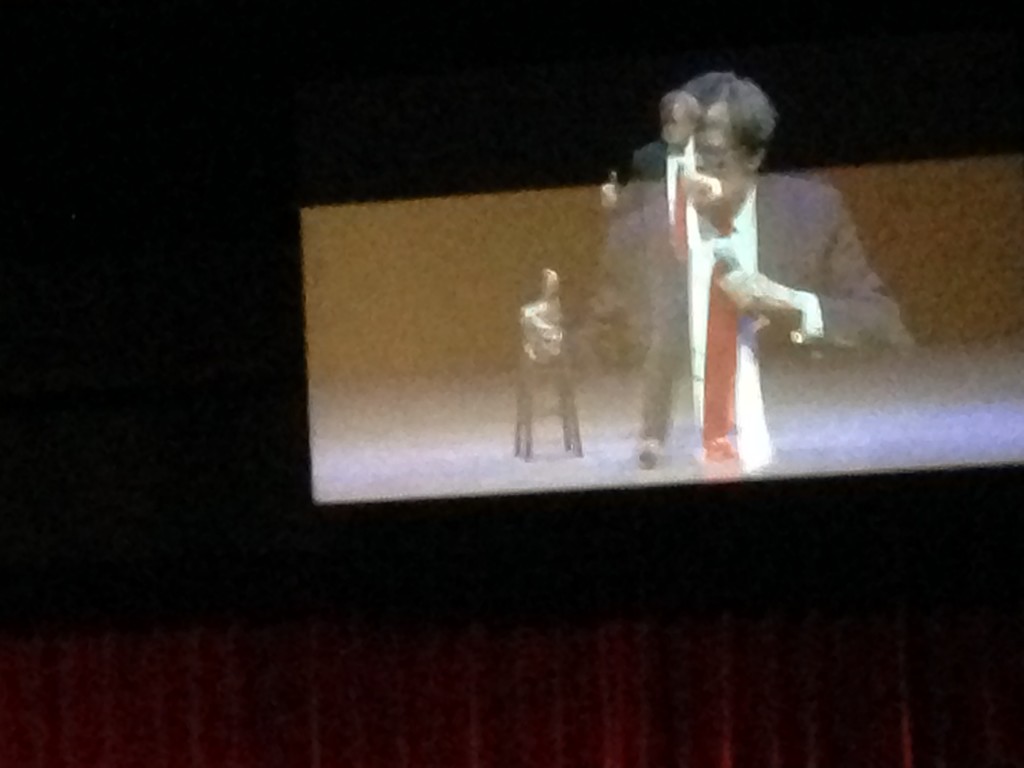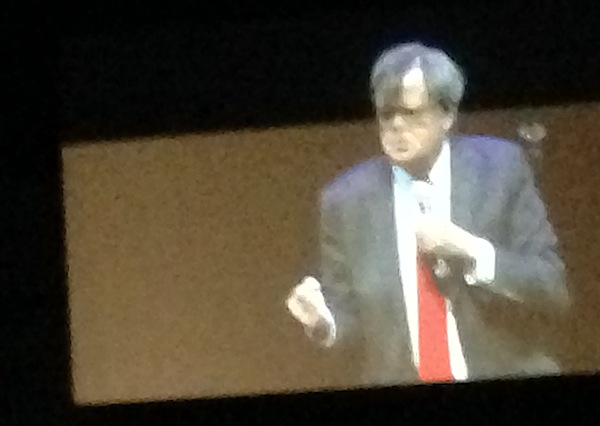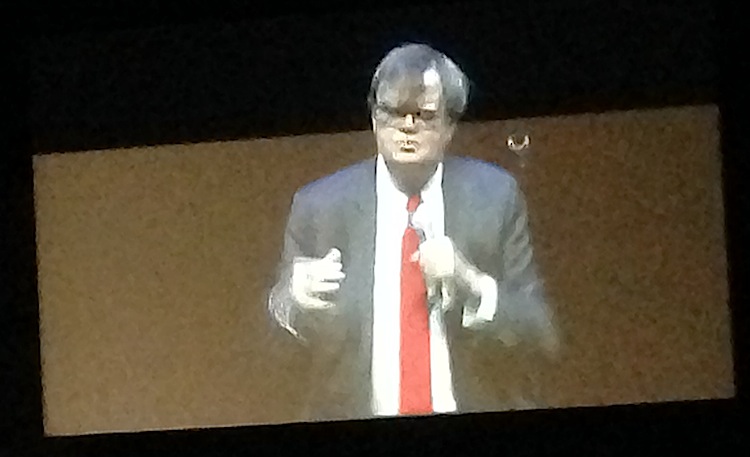Revelation & Memory: Garrison Keillor
Saw Garrison Keillor last night. Not his show; just him, solo except for a short set with a local guitarist.
He was very much himself: baggy suit, long red tie, long red socks, red tennis shoes.

He told stories and sang songs for two hours straight. The Durham Performing Arts Center was pretty well filled, mostly with those of or near his age.
He and I are in the same generation, born only months apart. That relates to my big revelation about him, which will be disclosed here presently, along with a big recollection . . .
Some of last night’s stories I’d heard before: the Gospel birds. And the one about the 24 Lutheran pastors walking on water in Lake Wobegon.
Except last night the water-walking pastors’ tale was expanded far beyond the limits of the “News from Lake Wobegon” radio segment. This night it had grown into a full-fledged shaggy dog story, complete with a naked parasailer (parasailor??), cremated ashes in a green bowling ball, oversized waterborne duck decoy drones, a balloonist whose craft catches fire, and –yes — even a genuine (fictional) shaggy dog.
I suspect he may have been exaggerating some of it, at least a little. But that’s just me.
His overall message was well-tuned for his aging congregation. It was (spoiler alert): “Life Is Good.”
I’m one who still needs occasional persuading about that; at least during any week with a Tuesday in it.
But now, to the promised startling revelation about him. I’m almost certain this has not been recounted on his radio show; tho admittedly there are a few I’ve missed in its 40-year run:
I can tell it because, you see, I met him once. In the late 1980s, he took part in a Quaker-instigated literary exchange project, which brought together a group of American and Russian writers. This was in the days of communism, censorship, samizdat, and all that.
The result of the project was a book of stories, The Human Experience, published simultaneously in English and Russian, on both sides of the “Iron Curtain.”
The book was a pretty adventurous thing to do then; but it was soon upstaged by the emergence of Gorbachev, glasnost and the openings which led to the collapse of communism and the Soviet Union and its evolution into — well, whatever they’re calling Putin’s police state these days. But all that’s another story.

There was a launch party for the English version of The Human Experience at the Friends Meeting of Washington. Garrison attended it. And so did I.
During a break, gathered around the refreshments, I got his autograph on my copy, then worked up my gumption and asked: “Garrison, what did you do about the draft?”
Because, you see, we are essentially the same age. And there’s one thing I know about this cohort: every American male of our generation — every one — has a draft story.
I’m talking about the military draft, for which I became eligible in 1960.
The military draft worked through a network of local draft boards. The boards sent out monthly notices to young men, ordering them to report for induction, to fill quotas set by the Pentagon. Then the young men showed up, took physicals (Yes, just like in “Alice’s Restaurant”), and over the decades several million were “inducted” for two years service in the army.

Most individual draft stories are unremarkable: most of us “submitted to induction.”
But others stayed in college til they were too old (26 or thereabouts); or they failed the army physical (flat feet or a long list of other maladies); or they went to seminary; or were the only surviving son. Or, as in my case, they filed as a conscientious objector.
A smaller but pivotal number took other paths: 25 to 50,000 moved to Canada; several thousands openly refused, of these some hundreds went to prison.
And for as long as I had been listening to Keillor’s radio monologues, I had wondered: what did HE do?
The question nagged at me: every U.S. male our age had a story. What was his? So now, seeing what was probably my one chance, I asked it.
And as you might expect, Keillor chuckled, and told a story. Here it is in brief:
He was at the University of Minnesota, and got swept up in campus antiwar actions. We’re talking anti-Vietnam War actions, for those who may have lost track.
He wasn’t a leader or anything special in the movement. But the war did not look good to him, and he decided to have no part of it. So he went home and pulled out his weapon of choice — a typewriter. (Here’s a picture of that ancient instrument for reference.)
 And he wrote a letter to his draft board, telling them (I paraphrase from his paraphrase), “Just wanted to let you know that if you send me a draft notice, I’m not going to that rotten war. Yours truly . . . .”
And he wrote a letter to his draft board, telling them (I paraphrase from his paraphrase), “Just wanted to let you know that if you send me a draft notice, I’m not going to that rotten war. Yours truly . . . .”
He told me this, and then those bushy eyebrows rose, and the shoulders shrugged. “Never heard from them after that,” he said.
So that’s the story: Garrison Keillor, the unknown draft resister. His draft board was evidently completely intimidated by his forthright stance, and probably arranged to mislay his file.
I remembered this account a few years later, on the eve of the first Iraq War. I was working at a big post office, in back, wearing an apron, pushing wheeled tubs of mail around, and listening to the radio on a Walkman (Another antique device, useful in the waning days when an Apple was mainly something to eat or make a pie with.)
 I was very upset about the impending invasion, as were many others. There had been a huge peace march and rally in Washington not long before. Some of my co-workers were called up from the reserve, or had relatives who were.
I was very upset about the impending invasion, as were many others. There had been a huge peace march and rally in Washington not long before. Some of my co-workers were called up from the reserve, or had relatives who were.
I’d had a tee shirt printed with the slogan: “No War For Oil. One Vietnam Is Enough.” I wore it to work twice, then was taken aside by a union steward and told I was in physical danger if I wore it again. (A LOT of postal workers were Vietnam vets, many of whom were convinced that peaceniks had been spitting on their brethren for years. I empathized with their PTSD, so I left the shirt at home. But I didn’t conceal my feelings.)
It was Saturday. My shift lasted til 10:30 PM. At six, Garrison came on. His voice was comforting, even if the whole thing seemed a bit unreal on the verge of a war.
Then, in the second hour, Keillor broke from his character. In his Lake Wobegon monologue, as I remember, he began to talk about how he had been given a call, presumably a call from God, to be a prophet. A prophet of God’s anger and judgment.
 But, he said, that call was too hard for him to bear. So he refused it.
But, he said, that call was too hard for him to bear. So he refused it.
Instead, he said, he became a liar.
I stopped pushing the tub of mail, and stepped into a shadowy corner, to hear the rest of it.
Yes, he repeated, a famous, successful comedian. And a liar.
As I recall, he spoke in his usual inflection, with maybe a touch more than usual of his undertone of melancholy, but minus histrionics. It was a confession that seemed utterly genuine, and I wondered if anyone but a serious believer, and in particular a Christian, could have made one like that.
There wasn’t much more. He soon segued back to the rest of the show. I resumed pushing the tub of mail.
 I wouldn’t call him a liar. More like a fellow sinner. But maybe that’s only because I identified with him; take away the famous, successful comedian part, and as far as I was concerned, we could almost be twins: same age, same gender, same writing habit, same spiritual condition.
I wouldn’t call him a liar. More like a fellow sinner. But maybe that’s only because I identified with him; take away the famous, successful comedian part, and as far as I was concerned, we could almost be twins: same age, same gender, same writing habit, same spiritual condition.
Through all the wars since then, I haven’t heard him say anything like it. But that memory alone was enough to draw me to the auditorium last night.
The stories were what I expected. But the solidarity was what I needed, even if now it hovered between the lines, concealed behind wryly off-color jokes about enlarged prostates and naked parasailers, and the repeated punchline: “Life Is Good.”
This past week had a Tuesday in it; so I still needed persuading about that.


great story, chuck. I once met Butch Thompson whom I served at a restaurant in Newton, kansas. He seemed like a good guy.